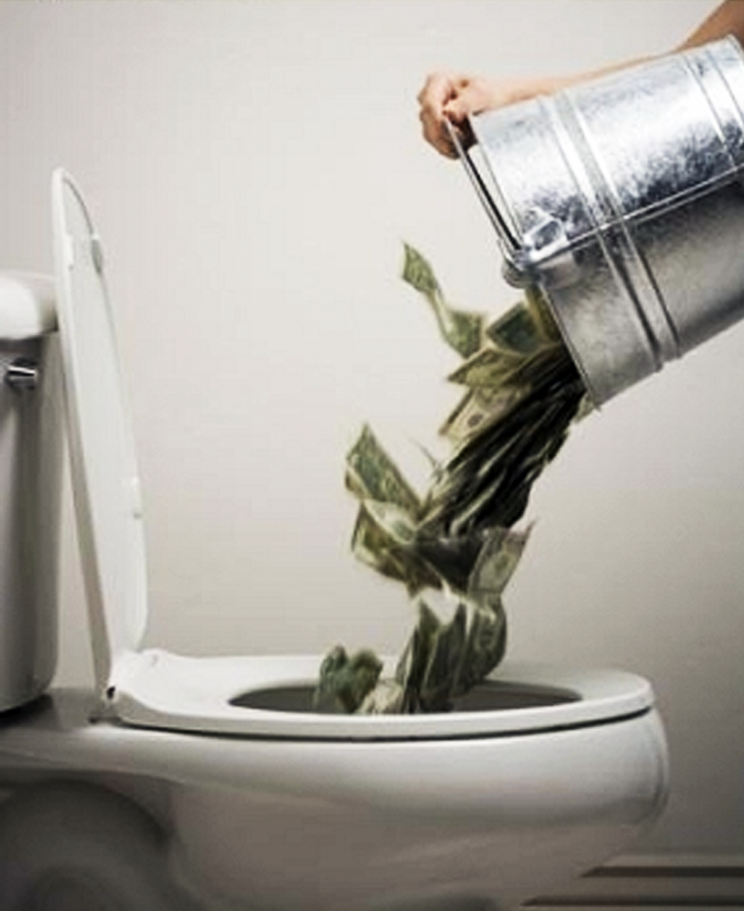These 10 megadonors blew $112 million on losing candidates in the presidential election

Ted Cruz was a frugal spender when he ran for president earlier this year. Four super PACs supporting the Republican senator from Texas raised $45 million. But after Cruz dropped out of the race in May, some of those donors got a lot of their money back. Energy investor Toby Neugebauer donated $10 million to one super PAC, and got a $9 million refund. Members of the Wilks family, who are Texas fracking billionaires, donated $15 million to a different Cruz super PAC and got $8.2 million back.
Most other big donors waved their money goodbye—without getting anything in return. Super PACs, the political groups that have no fundraising limits and typically target wealthy donors, raised $594 million during the 2016 presidential cycle, according to the Center for Responsive Politics. The bottom line on all that money: Ninety percent of it, or $535 million, went to losing candidates.
The ultimate winner, Republican Donald Trump, obviously ran an unconventional campaign far less dependent on outside funders than most other presidential candidates. At first, he refused to accept support from super PACs funded by wealthy donors. Super PACs eventually raised $59 million to spend campaigning for Trump. But super PACs backing Democrat Hillary Clinton raised three times as much, and even Jeb Bush and Marco Rubio, whom Trump dispatched in the primaries, had super PACs that pulled in more cash than Trump.
For all the money that lubricates national elections, big donors are less influential than many think. Casino magnate Sheldon Adelson famously spent $20 million on groups supporting Republican Newt Gingrich in the 2012 presidential election, and another $40 million or so supporting the eventual GOP nominee, Mitt Romney. Democrat Barack Obama won, rendering Adelson’s huge investment useless.
A Yahoo Finance analysis last year found that megadonors often back candidates they feel ideologically in sync with, while overlooking pragmatic questions of electability. Sometimes there’s big money on both sides of a hotly contested race, with each side’s cash haul effectively canceling out the other’s. Many big donors back winners less than 50% of the time.
One big donor who got his money’s worth this year was hedge funder Robert Mercer of Renaissance Technologies, who started out supporting Cruz but flipped to Trump once the real-estate developer became the official GOP nominee in July. Mercer gave $15.5 million to a super PAC that supported Cruz first, then Trump.
But most big donors got a poor return on their political investments this year, and Yahoo Finance scoured federal records to identify those who blew at least $6 million on losing candidates. Combined, these 10 donors spent $112 million on Hillary Clinton and other also-rans:
Tom Steyer, founder of the hedge fund Farallon Capital. Steyer is a California environmentalist who donated $66 million to political organizations during the 2016 cycle, making him the biggest individual contributor of all. That included nearly $20 million on groups that campaigned either for Hillary Clinton or against Donald Trump.
Donald Sussman, founder of hedge-fund Paloma Partners, who’s a longtime Clinton backer. He gave at least $19.9 million to two political groups supporting Hillary Clinton.
George Soros, the prominent investor and longtime Democratic donor. He donated at least $11.9 million to three groups supporting Clinton.
Haim Saban, media mogul who created the Mighty Morphin Power Rangers cartoon series. Saban and his wife Cheryl gave $11.9 million to Priorities USA, the main Democratic super PAC, and another pro-Clinton group.
Daniel Abraham, founder of the company that sells Slim-Fast diet products. Donations to pro-Clinton groups: $9.6 million.
Fred Eychaner, founder of Chicago-based Newsweb Corporation. He gave $9 million to Priorities USA.
Hank Greenberg, the former CEO of insurance giant AIG. Greenberg gave $10 million to Jeb Bush’s super PAC, Right to Rise, last fall. After Bush withdrew from the race last February, the super PAC sent Greenberg a $1.2 million refund, but the rest had already been spent. Greenberg’s net donation: $8.8 million.
Paul Singer, founder of the hedge fund Elliott Management. Singer gave $5 million to a super PAC supporting the presidential campaign of Florida Republican Sen. Marco Rubio, who bailed out of the race last March. (Rubio ended up running for re-election to the Senate, and won.) Singer also gave $2.5 million to the Our Principles PAC, funded by Republicans campaigning against Trump. The total bill for Singer’s lost causes: $7.5 million.
James Simons, founder of the hedge fund Renaissance Technologies, who gave $7 million to Clinton’s main super PAC, Priorities USA. Yes, Renaissance is also home to Robert Mercer, the firm’s co-CEO, who helped fund Cruz and Trump.
Dan and Farris Wilks, the aforementioned Texas frackers. They and their wives gave a combined $15 million to a Ted Cruz super PAC, and got $8.2 million back. But that still left them $6.8 million in the hole. There’s always next election.
Rick Newman is the author of four books, including Rebounders: How Winners Pivot from Setback to Success. Follow him on Twitter: @rickjnewman.

